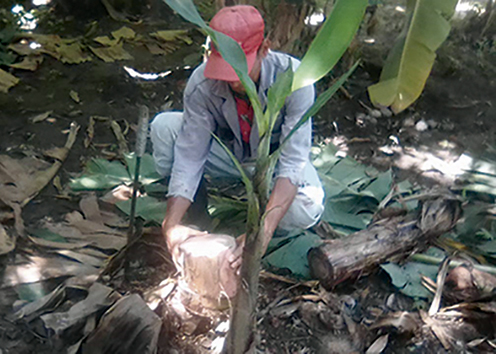Measuring the agroecological status of musas through a rapid methodology to assess sustainability
Abstract
Conventional agriculture has contributed enormously to soil deterioration, increased environmental pollution, and harm to human health, due to its general dependence on foreign inputs from other technological packages. This mode of production is based on monoculture, intensive mechanization, and the application of agrochemicals, as well as the use of genetically modified organisms, which has resulted in the emergence of new, more resistant pests and the loss of biodiversity and agri-food sovereignty. A counterpoint to this mode of production is agroecology, based on organic management that minimizes environmental and soil damage and emphasizes human health.
References
Etchevers J., C. Hidalgo, M. Vergara, M. Bautista y J. Padilla. 2009. Calidad de suelo: conceptos, indica dores y aplicación en agricultura. En: López- Blanco J. y Rodríguez - Gamino M. de L. 2009. Desarrollo de indicadores ambientales y de sustentabilidad en México. Ed. Universidad Nacional Autónoma de México UNAM Colección Geografía para el siglo XXI. Serie Libros de Investigación, No. 3. 196 p.
Karlen, D.L., M. J. Mausbach, J. W. Doran, R. G. Cline, R. F. Harris and G. E. Schuman Soil quality: a concept, definition and framework for evaluation. Soil Science Society of America J. 61:4. 1997.
Navarro, A., B. Figueroa, M. Martinez, F. González y E. Salvador. Indicadores físicos del suelo bajo labranza de conservación y su relación con el rendimiento de tres cultivos. Agricultura Técnica en México. 34 (2):151. 2008


